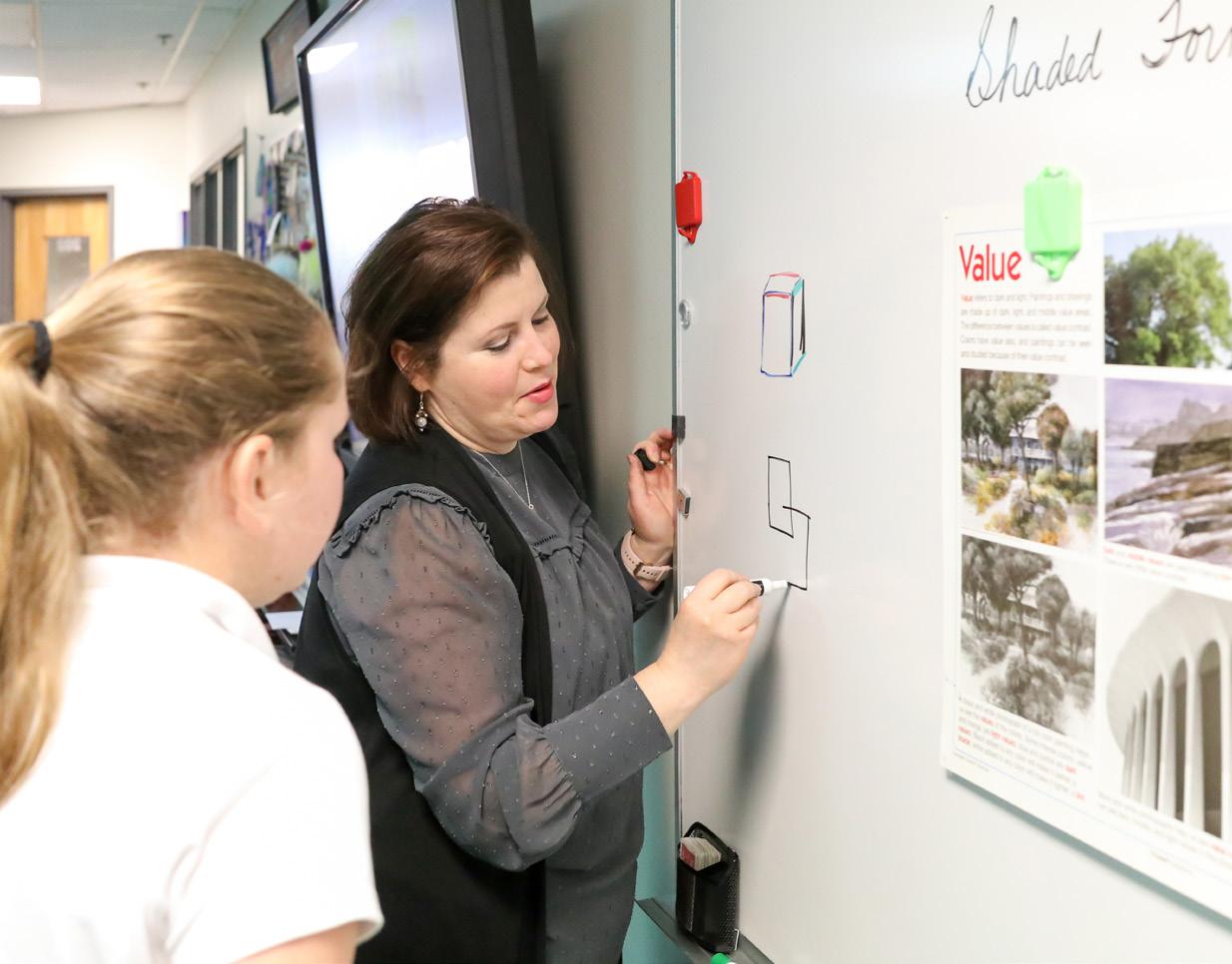
2 minute read
Science ElectivesOne Semester Courses
Ap Psychology
This course for seniors offers a survey of the various sub-fields of psychology. Through the reading of text and journals, lectures, class activities, films, and projects, this course provides students with a working knowledge of the theories and important terms in the sub-fields of psychology. It studies the research as well as historical and current theories in the various sub-fields while introducing students to significant psychological researchers. Critical thinking, problem solving, and writing skills are emphasized. Students apply for this course and are accepted by the Science faculty after a consideration of grades from previous Upper School Science classes, interest in the subject matter, writing ability, and work ethic.
Enrollment is based on a teacher’s recommendation and at least a B+ average in a previous Webb AP or Honors Science course or an A- in a Webb non-Honors course.
AP Psychology Course Standards
1. Students can identify the three main components of the scientific attitude and relate them to critical thinking and analysis of psychological research.
2. Students can think, write, and speak about the scientific method and how it relates to the research methods of description, correlation, and experimentation.
3. Students can think, write, and speak about the basics of the nervous and endocrine systems and how they relate to human behavior.
4. Students can think, write, and speak about important, fundamental ways people and animals learn, think, and remember.
5. Students can describe how motivation, emotions, and stress are complex, each involving an interplay of cognition, physiology, and psychology.
6. Students can understand that human development, from the womb to the tomb is a complex process involving physical, cognitive, moral, and social changes and consistencies.
7. Students can describe various theories of human personality development, expression, and description.
8. Students can describe intelligence – how it’s defined, developed, measured, and applied to everyday living in various contexts.
9. Students can describe abnormal behavior and various psychotherapeutic and biomedical treatment modalities of these disorders.
10. Students can understand how humans think about, influence, and relate to each other.
11. Students can write careful and cogent essays in response to prompts from College Board AP Free-Response Questions.
Prerequisite: Preference will be given to seniors for enrollment in this class; this course cannot count as a Science graduation requirement.
MATERIALS SCIENCE: METALS AND CERAMICS (fall)
This course serves as a hands-on introduction to the properties of materials, from bulk properties to the nanoscale. Students will learn to conduct independent investigations into the chemical and physical properties of metals and ceramics. Topics of study include measurement of chemical and physical properties of metals, crystal structure and states of matter, thermodynamics, phase diagrams of pure metals and alloys, and exploring mechanical properties. There is a significant laboratory component, with each unit supported by embedded labs and projects. Students will draw wires, make alloys, study thermal shock, and try glass blowing and bending. There will be a special focus on applied materials science, including investigations of the atomic and crystalline structure of electronic and magnetic materials, including metallic conductors, resistive alloys, superconducting materials, piezo-electric and piezo-magnetic materials, and optical materials.
This course is open to juniors and seniors who have completed a chemistry course.










